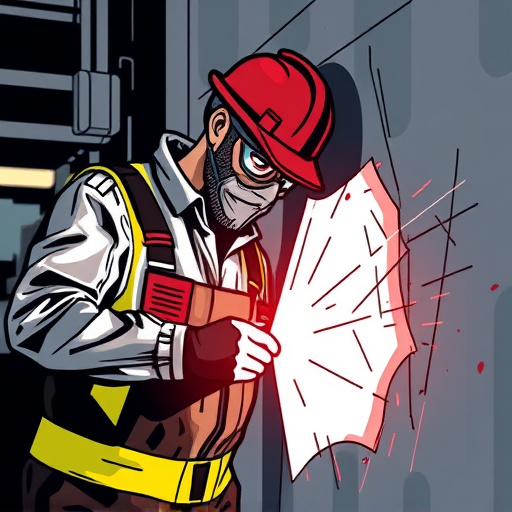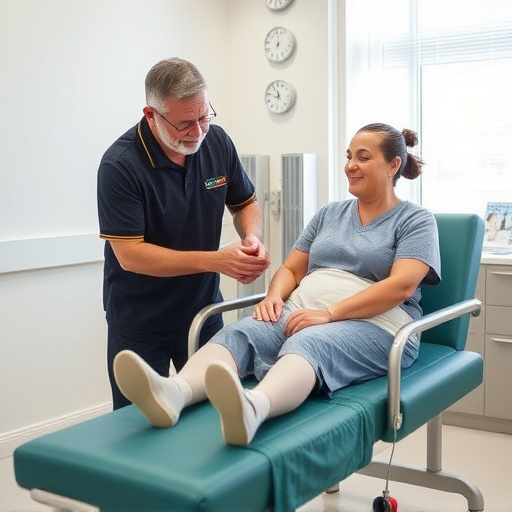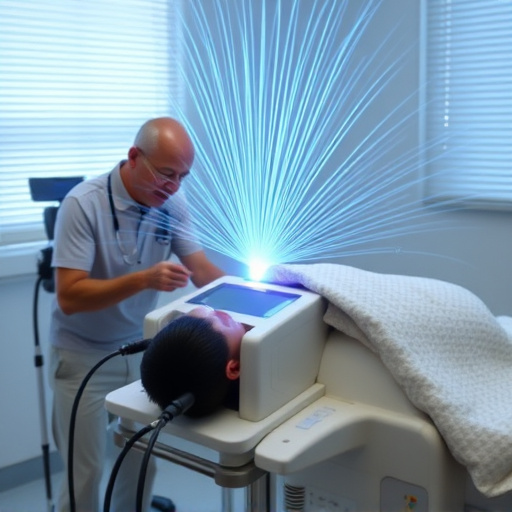Workers compensation doctors specialize in treating and managing workplace injuries, providing expert assessments, diagnoses, and tailored treatment plans. They collaborate with stakeholders to ensure compliant care and facilitate claims processes. Their expertise is crucial for determining injury severity, work capabilities, disabilities, and permanent impairments, influencing settlement offers through comprehensive medical evidence. Effective communication between these doctors and the settlement team ensures fair agreements, leveraging insights on treatments like joint pain relief and shockwave therapy.
A workers compensation doctor plays a pivotal role in resolving claims efficiently. These medical experts assess work-related injuries, providing crucial insights that influence settlement offers significantly. Understanding their roles and leveraging their medical expertise can streamline the claims process. This article delves into the impact of workers compensation doctors on settlement offers, explores strategies for effective communication between doctors and claims settlers, and highlights best practices to ensure fair and timely resolutions.
- Understanding Workers Compensation Doctor Roles
- Impact of Medical Expertise on Claims Settlement
- Strategies for Effective Doctor-Settler Communication
Understanding Workers Compensation Doctor Roles

Workers compensation doctors play a crucial role in managing and treating workplace injuries. Their primary responsibility is to assess, diagnose, and develop treatment plans for employees who have suffered work-related injuries or illnesses. These medical professionals are often the first point of contact for injured workers, offering specialized expertise in occupational health. They collaborate closely with employers, insurance providers, and legal teams to ensure that employees receive appropriate care while adhering to legal requirements.
In the context of sports injury treatment, lower back pain, and car accident injury care, these doctors are instrumental in determining the extent of an individual’s injuries and their impact on work capabilities. Their expert opinions significantly influence settlement offers by providing clear medical evidence. Through comprehensive evaluations, they can identify disabilities, permanent impairments, and the need for ongoing rehabilitation, all of which are vital factors in workers’ compensation claims and subsequent financial settlements.
Impact of Medical Expertise on Claims Settlement

The expertise of a workers compensation doctor plays a pivotal role in shaping the outcome and settlement offers of work-related injury claims. These medical professionals are well-versed in diagnosing and treating musculoskeletal injuries, which are common in workplace settings. Their knowledge and skills enable them to provide detailed insights into the extent of an employee’s injuries, including any long-term effects or disabilities. This expertise is invaluable during negotiations as it helps adjusters and insurers accurately assess the value of a claim.
When a workers compensation doctor assesses an injury, they consider various factors, such as the nature of the injury, associated pain levels, and potential for recovery. Their evaluations can significantly impact settlement offers by either reinforcing or challenging the claimant’s case. For instance, if a doctor prescribes sciatica relief or recommends specific sciatica treatment plans due to musculoskeletal injuries, this evidence can strengthen the claim and potentially lead to higher settlements.
Strategies for Effective Doctor-Settler Communication

Effective communication between a workers compensation doctor and the settlement team is key to reaching fair agreements. Doctors play a pivotal role in providing detailed medical reports that outline an injured worker’s condition, limitations, and potential treatments. This information is crucial for settling parties to understand the extent of injuries and their long-term effects, enabling them to make informed decisions about compensation offers.
Successful communication strategies include clear documentation of diagnoses and treatment plans, with a focus on both joint pain relief and mobility improvement. Doctors should also be open to discussing alternative treatments, such as shockwave therapy for pain, that can offer significant benefits. Regular updates and detailed notes during each interaction ensure consistency and provide a comprehensive view of the patient’s progress, facilitating a smoother settlement process.
A workers compensation doctor plays a pivotal role in claims settlement by providing expert medical opinions that can significantly impact case outcomes. Their thorough understanding of work-related injuries and rehabilitation processes is invaluable. Effective communication between doctors and settlers is essential to ensure accurate assessments and just settlements. By fostering open dialogue, professionals in this field can navigate complex cases, ultimately facilitating fair resolutions for all parties involved.














